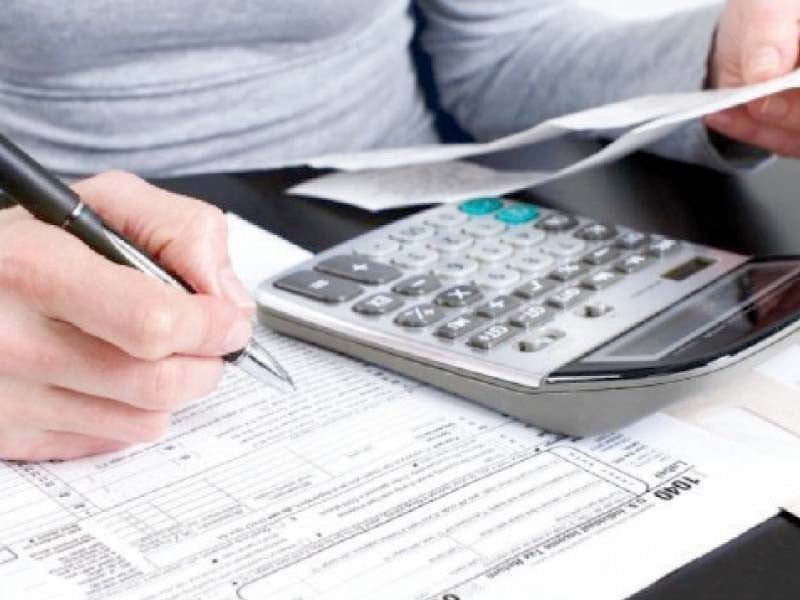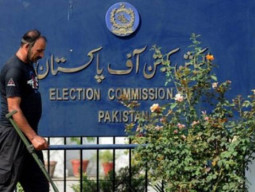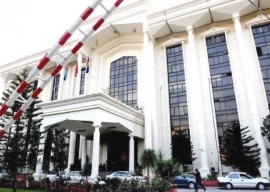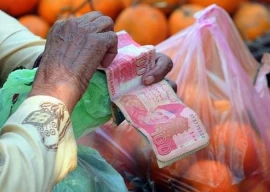
The government made public on Monday the income details of the members of parliament that showed a 28% decline in the taxes paid by the lawmakers and revealed that one in 10 legislators did not even file the tax returns in 2019.
In 2019, 392 members of the National Assembly and the Senate declared a cumulative income of Rs11 billion but they paid a mere Rs576 million in taxes. This means that the parliamentarians paid just 5.2% of their income – far lower than the standard maximum tax rate of 35% for a salaried person.
Prime Minister Imran Khan paid Rs9.9 million income tax, excluding the tax on agricultural income, which equalled to 22.7% of his declared income of Rs43.6 million. The premier was the 10th highest taxpayer among the 392 members of the parliament, Imran had paid only Rs282,449 tax in 2018.
The premier declared Rs38.9 million as normal income, Rs2.3 million income under the fixed tax regime and another Rs2.4 million as agriculture income. Excluding the agriculture income, Imran’s effective tax rate came to 24%.
While the government disclosed the incomes and the taxes paid by the parliamentarians, it last week introduced legislation to exempt the armed forces from a similar disclosure.
Finance Minister Shaukat Tarin launched the Tax Directory 2019 with a delay of over two years, which also revealed that the trend of filing the income tax returns by the legislators went down in the first year of the Pakistan Tehreek-e-Insaf (PTI) government compared with the last year of the Pakistan Muslim League-Nawaz (PML-N) government.
The tax directories for 2020 and 2021 are still pending.
Out of a total of 446 members of the National Assembly and the Senate, 392 filed the returns with the Federal Board of Revenue –down from 401 filed the returns in 2018. These 392 legislators paid a cumulative sum of Rs576 million in taxes against Rs800 million in the year before – showing a decline of 28%.
The fact that 54 members of parliament did not submit their income tax returns for tax year 2019 does not reflect well on the performance of the FBR. There was no statement by the FBR as to whether or not any action had been taken against these parliamentarians.
As against the past practice of only disclosing the taxes paid by the parliamentarians, this time the government decided to reveal their income under various heads to bring more transparency, said FBR chairman Dr Mohammad Ashfaq told the launching ceremony.
Tarin said that the government had the information about 15 million Pakistanis, who had lavish lifestyles but they did not pay taxes. The FBR would start sending notices to these people from this month, asking them to pay their due taxes, adding that if they had objections there would be a third-party audit.
Last week, the government introduced a legal amendment to allow the FBR to disclose assets information of the public office holders and the civil servants but exempted the armed forces from the disclosure. When asked on Monday, Tarin did not respond to the question as to why the armed forces were exempted.
Read: 188 lawmakers didn’t pay income tax for FY2019: FBR
A breakdown of the data showed that 80 senators paid Rs169 million in taxes on the cumulative income of Rs1.5 billion, bringing the average tax rate for the members of the upper house of parliament to 11%.
Similarly, the 312 members of the National Assembly paid Rs408 million in taxes on their cumulative annual income of Rs9.5 billion in 2019, paying just 4.3% of their income in taxes.
Since the agriculture income tax was a provincial matter, Dr Mohammad Ashfaq said that the FBR had only disclosed their income from agriculture. The FBR chairman said that the 392 lawmakers had declared a cumulative sum of Rs625 million as their agriculture income in 2019.
Provincial-wise, 44 members of the Balochistan Assembly paid Rs58.3 million in taxes on Rs944 million income at an average rate of 6.2%. The 91 members of the Khyber Pakhtunkhwa Assembly paid Rs30 million in taxes on the income of Rs720 million –just 4.2% of their declared income.
The 327 members of the Punjab Assembly declared Rs3 billion in income and paid Rs231 million tax, bringing their average tax rate to 7.7%. The 149 members of the Sindh Assembly paid Rs82.5 million in taxes on Rs1.8 billion income, bringing the average tax rate to 4.6%.
When the members of the four provincial assemblies are added to the list, the data showed that 1,003 lawmakers paid less than Rs1 billion in taxes on the cumulative income of Rs17.5 billion. The average tax rate came to a mere 5.5% for all of them.
This shows that there is a huge income-tax gap that the FBR is leaving unplugged. The FBR chairman had said a few weeks ago that he did not have the capacity to go after over 4 million people who were on the FBR’s radar but had not been filing their annual returns.
Highest Taxpayers
MNA Najeebullah Haroon paid the highest amount of Rs140.7 million tax or 7.5% of his Rs1.9 billion income. Senator Saifullah Abro came second with Rs60.7 million contributions to the national kitty on Rs213 million incomes. His effective tax rate was 28.5%, as the tax had been paid by the Association of Person in which he hasd stakes.
Senator Talha Mehmood of the Jamiat Ulema-e-Islam-Fazl (JUI-F) – the third highest taxpaying parliamentarian, paid Rs32.3 million on Rs180.3 million income at a rate of 18%. MNA Sheikh Fayyazuddin paid Rs28 million – just 1.7% of his total income of Rs1.7 billion. Still he was the fourth highest taxpayer in the category of the parliamentarian.
Finance Minister Shaukat Tarin was the fifth highest taxpayer, who paid Rs26.6 million in taxes on his Rs304 million income in 2019– at the rate of 8.7%.
PML-N President and Opposition Leader in National Assembly Shehbaz Sharif paid Rs8.2 million tax which was 14.5% of his Rs56.4 million declared income, excluding tax agriculture income.
The FBR implements a self-assessment tax regime, where the taxpayer has the liberty to declare his tax contribution. However, self-assessment is only successful if there is a strong tax audit regime.
All the successive governments, including that current one of the PTI, have shied away from strengthening the audit wing of the FBR and it does not have human resources to conduct an audit of taxpayers.
Punjab Chief Minister Sardar Usman Buzdar paid meagre sum of Rs2,000 tax on Rs938,858 normal income at a rate of 0.2%. His could be the fit case for audit because the effective tax rate of 0.2% does not seem justifiable.
Sindh Chief Minister Murad Ali Shah paid Rs1.1 million or 3.3% of his income of Rs33.5 million, which also seems too low. Shah also declared another sum of Rs24.2 million as agriculture income on which he might have paid tax in the province. After adding agriculture income, his total income for 2019 came to Rs57.7 million.
Khyber-Pakhtunkhwa Chief Minister Mahmood Khan paid Rs66,258 on Rs2.5 million income, bringing his effective rate to mere 2.6%, while, Balochistan Chief Minister Abdul Quddus Bizenjo paid Rs1.1 million tax on Rs7.9 million tax –at 13.5% tax rate.
Former president Asif Ali Zardari paid Rs2.2 million or 1.5% of his regular annual income of Rs146.6 million. After adding agriculture income, the former president’s total annual income was Rs282 million, according to the directory.




1732184775-0/BeFunky-collage-(80)1732184775-0-165x106.webp)

1732189200-0/Express-Tribune-(13)1732189200-0-270x192.webp)
1732184492-0/BeFunk_§_]__-(25)1732184492-0.jpg)

1732179298-0/BeFunk_§_]__-(23)1732179298-0.jpg)

1732181665-0/Express-Tribune-(9)1732181665-0-270x192.webp)










COMMENTS (2)
Comments are moderated and generally will be posted if they are on-topic and not abusive.
For more information, please see our Comments FAQ